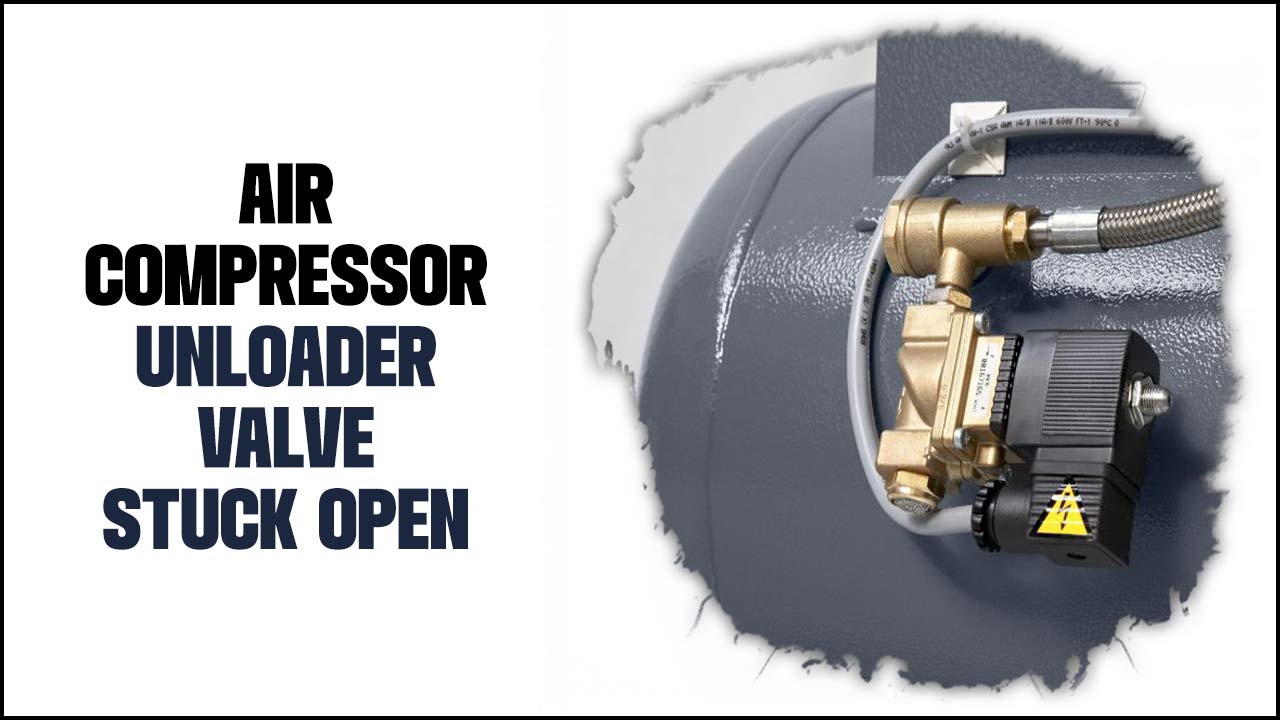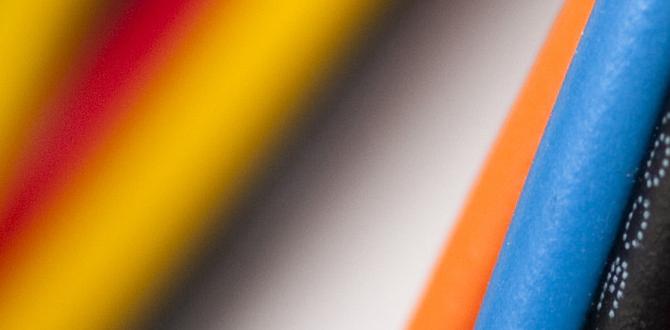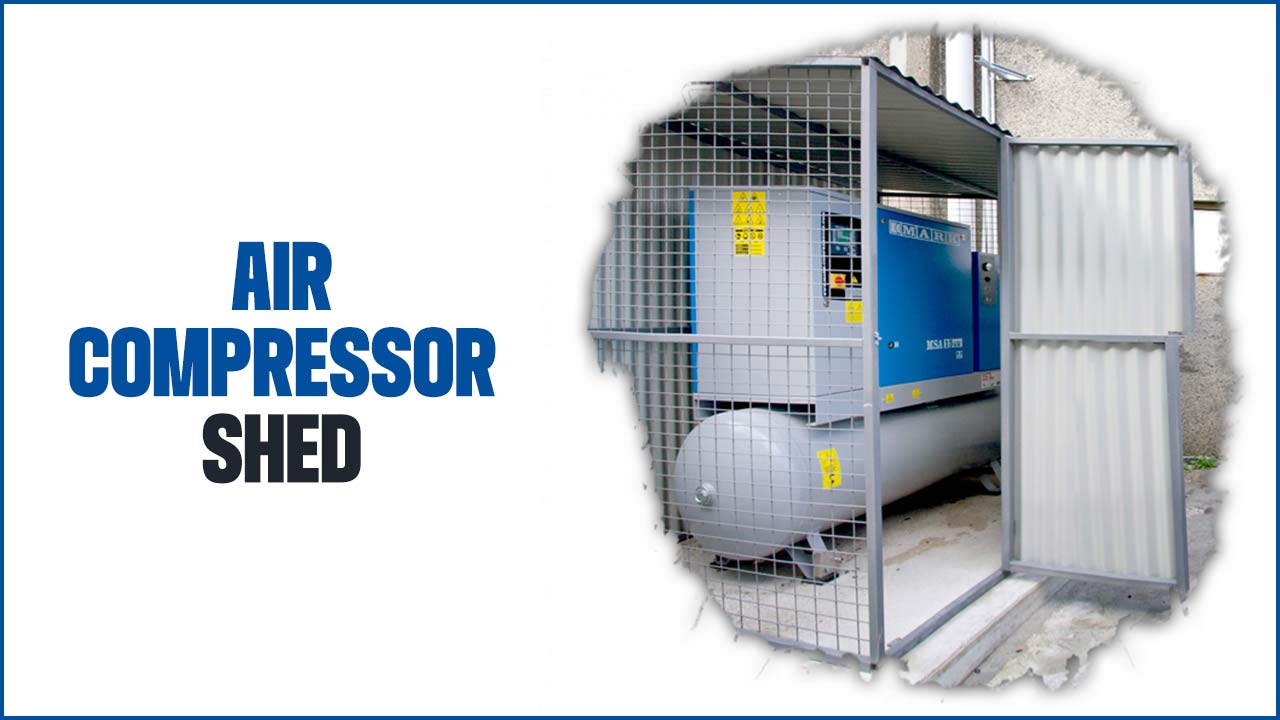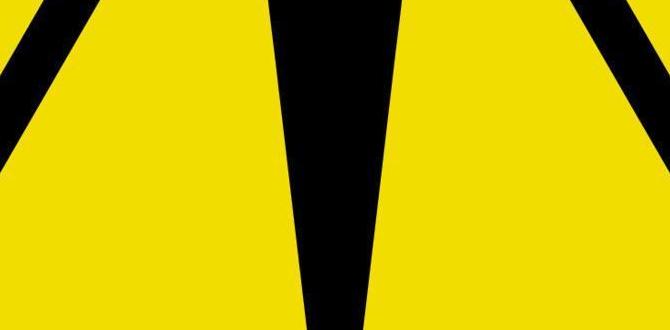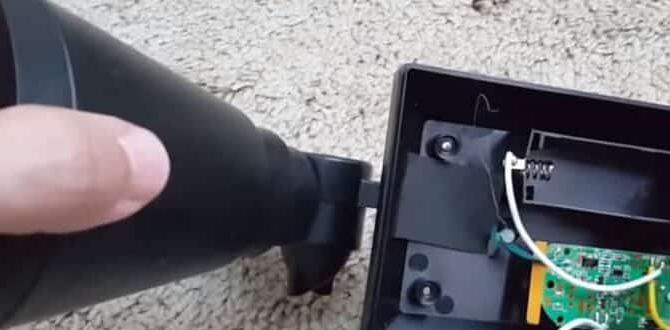Have you ever decided to tackle a big mess in your home? You might have faced a clogged sink at some point. It can be frustrating. But fear not! There are many ways to unclog a sink. Imagine having a sink that drains like new in no time.
In this article, we will show you how to unclog a sink using simple methods. You don’t need fancy tools or expert skills. Just a few common items can work wonders.
Did you know that the average person spends 30 minutes a month dealing with clogs? That’s time we could spend having fun instead! Let’s dive into the world of sink problems and discover how easy it can be to fix them.
How To Unclog Sink: Effective Tips And Tricks For Success
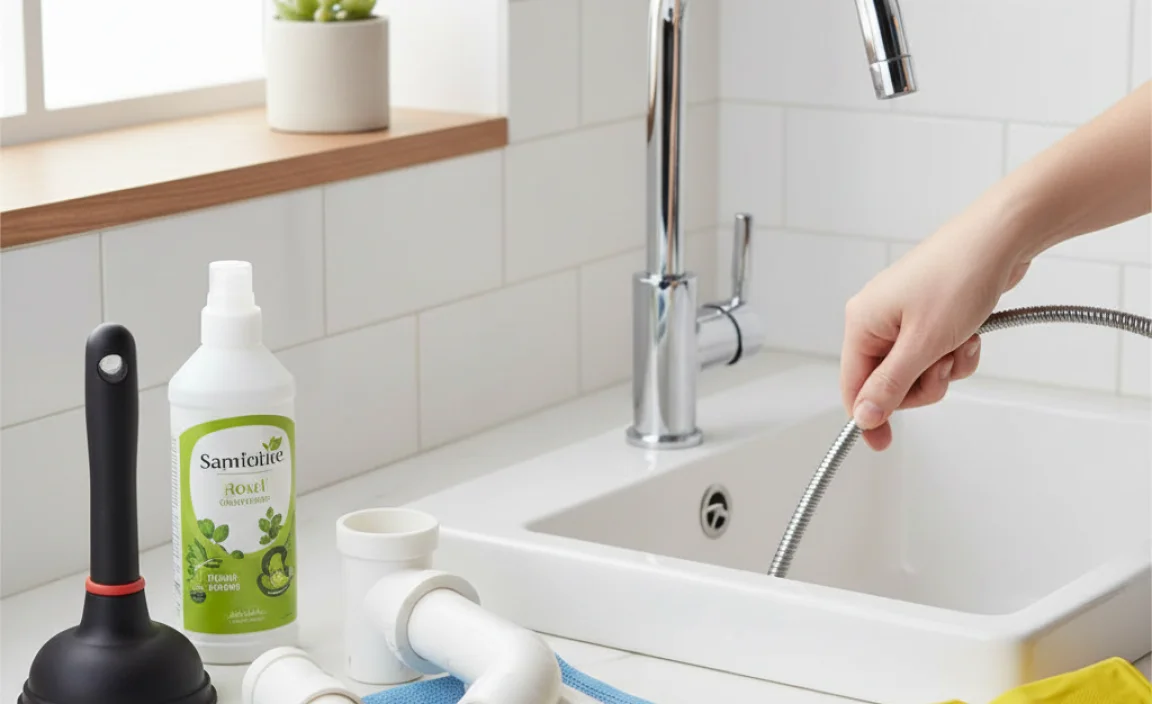
How to Unclog a Sink
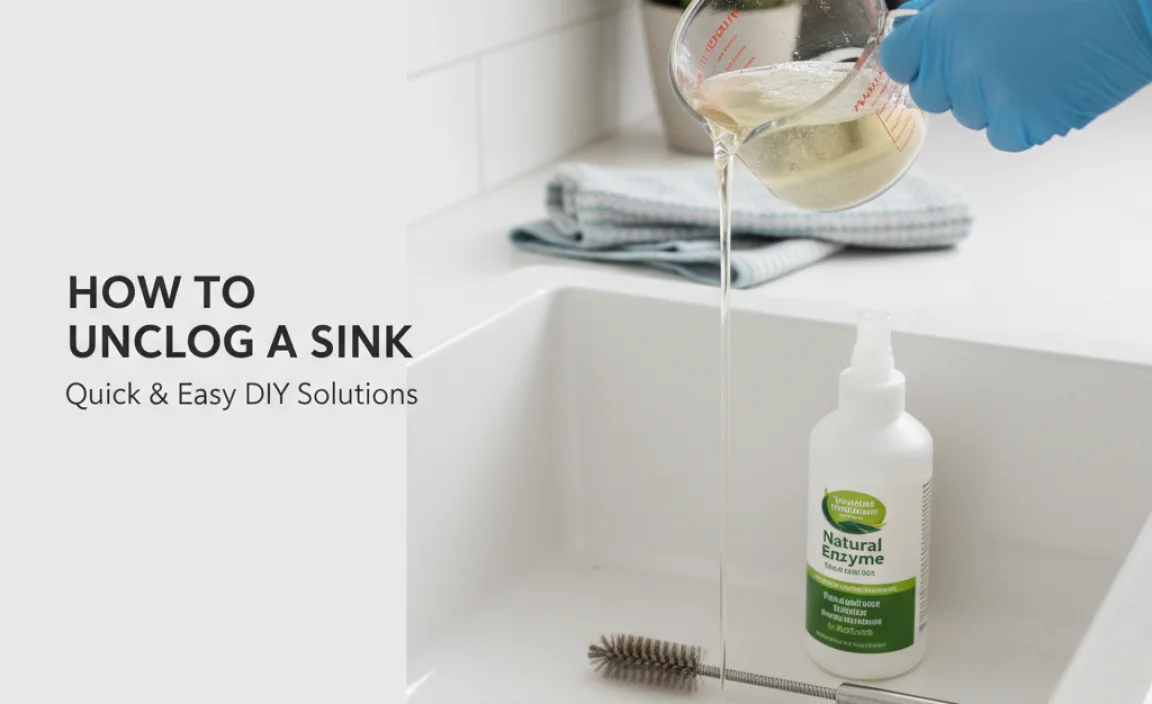
Clogged sinks are a common problem. They can happen when food, hair, and soap build up. To tackle this issue naturally, try using baking soda and vinegar. This simple method can effectively break down tough clogs. Pour baking soda down the drain, followed by vinegar. Wait for a while, and then flush with hot water. Did you know this method is not only effective but also eco-friendly? Give it a try and enjoy a freely flowing sink!
Common Causes of Clogged Sinks
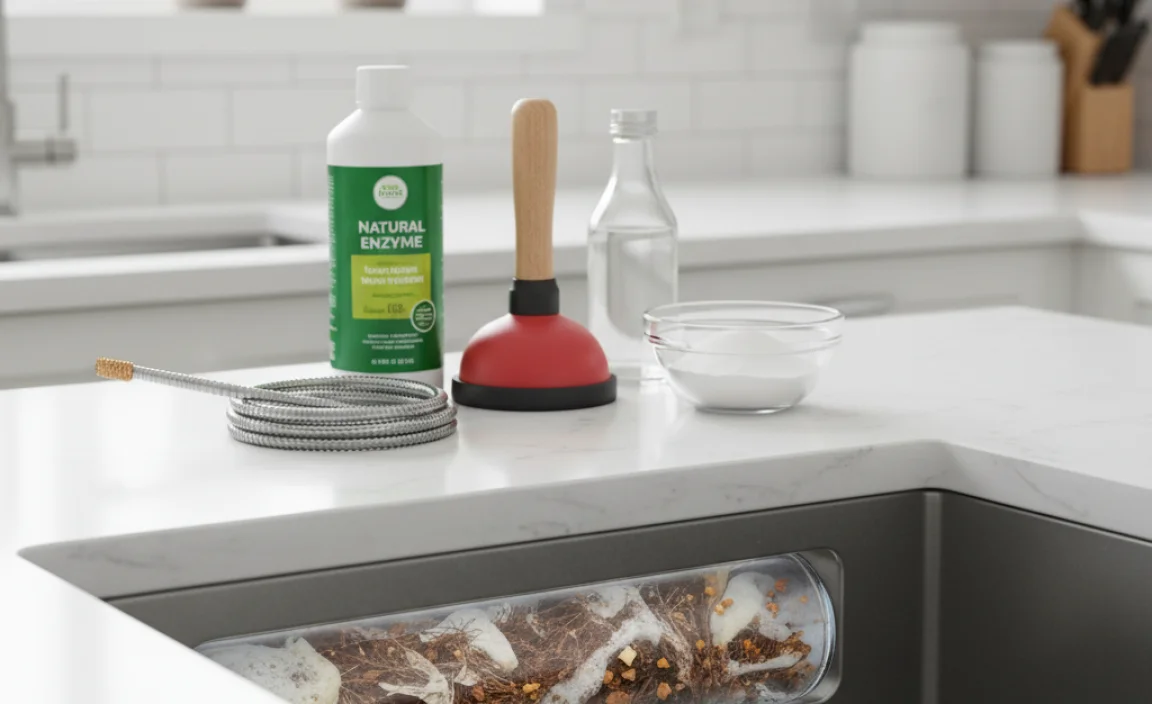
Grease accumulation in pipes. Food debris and organic matter buildup.
Two common culprits lead to pesky clogged sinks. First, there’s the sneaky grease that builds up in pipes. Imagine your favorite fries slipping down the drain! This grease can harden and cause serious blockages. Next, we have food debris and organic matter. Tiny morsels from dishes often gather like an uninvited party, gumming up the works. Remember, your sink is not a garbage can! Keep a watchful eye on what goes down for a clear flow and a happy drain.
| Issue | Description |
|---|---|
| Grease | Builds up over time and hardens |
| Food Debris | Gathers like unwanted guests |
Essential Tools and Materials for Unclogging
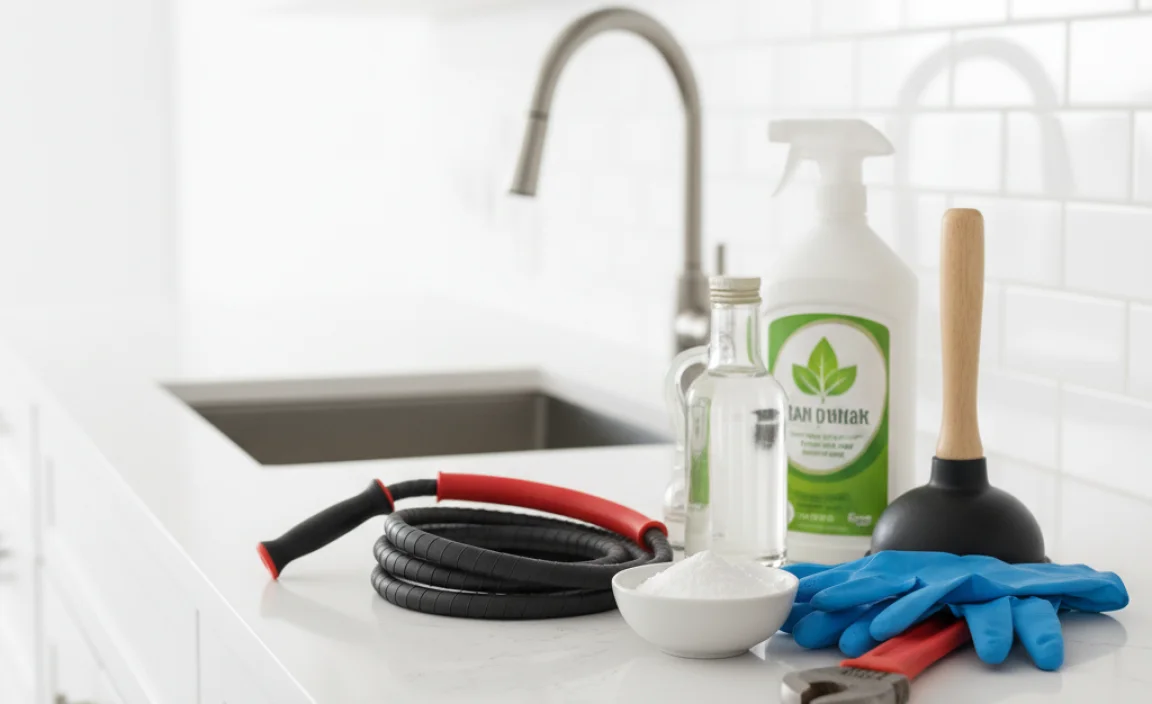
Tools needed: plunger, auger, and pipe wrench. Recommended cleaning solutions: baking soda, vinegar, and enzymatic cleaners.
To tackle a stubborn clog, you need the right tools. An effective plunger can work wonders in moving blockages. If that doesn’t do the trick, grab an auger to dig deeper into the pipes. A pipe wrench is handy for loosening stubborn fittings, but make sure not to transform into a home repair superhero too quickly! For cleaning solutions, reach for baking soda and vinegar for a fizzy, science experiment in your sink. Enzymatic cleaners can also save the day.
| Tool/Solution | Purpose |
|---|---|
| Plunger | Push out clogs |
| Auger | Break down tough blockages |
| Pipe Wrench | Loosen pipes |
| Baking Soda | Natural cleaner |
| Vinegar | Fizzy reaction |
| Enzymatic Cleaner | Breaks down waste |
Step-by-Step Techniques to Unclog Your Sink
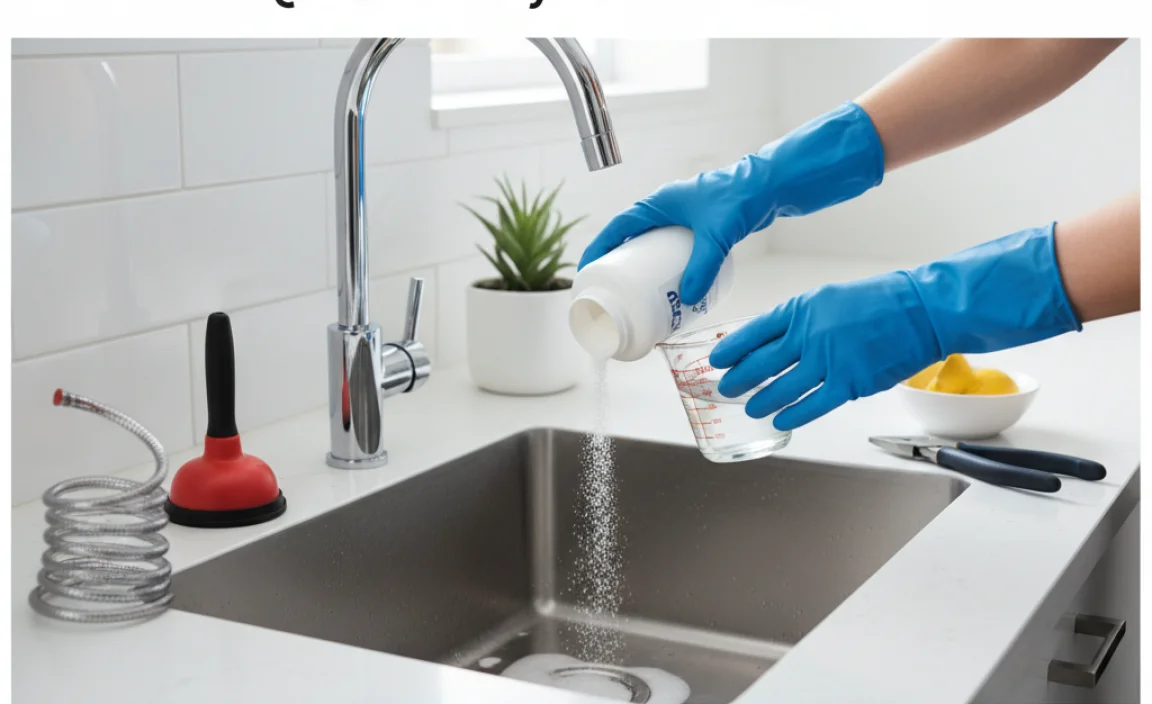
Method 1: Using a Plunger Effectively. Method 2: Employing a Drain Snake.
There are easy ways to make your sink flow smoothly again. First up, grab a plunger! This trusty tool can work wonders. Make sure to cover the overflow hole before you plunge. It’s like giving your sink a big belly hug! Next, if the plunger doesn’t do the trick, try a drain snake. It’s like a little snake that eats gunk and hair. Just slide it into the drain and pull out the yuck. Who knew plumbing could be so much fun?
| Method | Steps |
|---|---|
| Using a Plunger | 1. Cover the overflow hole. 2. Plunge vigorously. |
| Employing a Drain Snake | 1. Insert the snake into the drain. 2. Twist and pull out debris. |
Natural Remedies for Mild Clogs
How to use baking soda and vinegar. Benefits of salt and boiling water.
Stuck with a clogged sink? Try baking soda and vinegar first! Pour 1 cup of baking soda and 1 cup of vinegar down the drain. Watch it fizz like a tiny volcano! Let it sit for 30 minutes, then flush with hot water. It’s like a nature party for your pipes! Another trick? Use salt and boiling water. Sprinkle ½ cup of salt down the drain, followed by a kettle of boiling water. This combo can zap away grease. With these simple remedies, you might not even need a plumber!
| Method | Ingredients | Steps |
|---|---|---|
| Baking Soda & Vinegar | 1 cup each | Pour, fizz, wait 30 mins, flush! |
| Salt & Boiling Water | ½ cup salt | Sprinkle, pour boiling water! |
When to Call a Professional Plumber
Signs that indicate severe clogging. Cost considerations for professional services.
Sometimes, a sink clog is worse than it looks. Here are some signs it’s time to call a pro:
- Water drains very slowly.
- There is a bad smell coming from the sink.
- Gurgling sounds happen when you use other drains.
Hiring a plumber can cost between $100 to $300. This price may go higher depending on the problem. If you notice many signs, don’t wait. Calling an expert early may save you money and time.
When should I contact a plumber?
If you see signs of severe clogging, it’s best to contact a plumber right away.
Preventative Measures to Avoid Future Clogs
Regular maintenance tips. Best practices for disposing of kitchen waste.
Keeping your sink clear is easier than you think! Regularly check and clean your drain. Use a mix of hot water and baking soda once a month. It helps break down gunk. Remember, your sink isn’t a trash can! Never toss grease or food scraps down the drain. They like to party together and cause clogs. Here’s a table with some tips:
| Tip | Description |
|---|---|
| Hot Water | Pour hot water down the drain monthly. |
| Baking Soda | Add baking soda to help clean pipes. |
| Grease Disposal | Dispose of grease in the trash, not the sink. |
Following these tips will help keep your sink happy and clog-free. No one wants a sink that throws a tantrum!
Troubleshooting Persistent Clogs
Diagnosing more complex plumbing issues. Additional tools and techniques for stubborn clogs.
Strong clogs can be tricky. First, check for larger problems like damaged pipes or tree roots invading your plumbing. These issues can be sneaky, like a cat trying to sneak up on a laser dot! Sometimes, basic tools won’t work. That’s when you need to grab a plumber’s snake or a high-pressure water jet. These tools are your superhero squad against stubborn clogs. Remember, if the problem seems bigger than a game of hide and seek, don’t hesitate to call a pro!
| Tool | Use |
|---|---|
| Plumber’s Snake | Unclogs deeper pipes |
| High-Pressure Water Jet | Blasts tough clogs away |
Conclusion
In conclusion, unclogging a sink is simple! You can use tools like a plunger or a snake. Remember to remove any visible debris. If these methods don’t work, we might need to call a plumber. Now that you know these tips, you can try unclogging your sink! For more detailed steps, check out guides online or ask an adult for help.
FAQs
What Are Common Causes Of A Clogged Sink And How Can They Be Prevented?
A clogged sink often happens because of food scraps or hair getting stuck in the drain. Dirt and soap can also build up. To prevent this, always use a strainer to catch food and hair. You should also rinse your sink often and avoid pouring grease down the drain. This way, your sink will stay nice and clear!
What Tools Or Methods Are Effective For Unclogging A Sink At Home?
To unclog a sink at home, you can use a plunger. A plunger uses air pressure to push the blockage away. You can also try using a mixture of baking soda and vinegar. Pour half a cup of baking soda, then half a cup of vinegar, and wait for 30 minutes before rinsing with hot water. If those don’t work, a plumber’s snake can help remove the clog.
Are There Any Natural Remedies For Unclogging A Sink Without Using Harsh Chemicals?
Yes, there are some natural ways to unclog a sink! You can pour baking soda down the drain. Then, add vinegar. This makes bubbles that help break up the clog. After it stops bubbling, rinse with hot water. You can also use salt and hot water for another option!
When Should I Call A Professional Plumber To Deal With A Clogged Sink?
You should call a professional plumber if your sink is still clogged after you try to fix it yourself. If water starts to back up or smell bad, that’s a sign too. Also, if you hear strange noises coming from the pipes, it’s best to get help. Professionals have special tools and can solve problems quickly. Don’t wait too long; it can get worse!
How Can I Properly Maintain My Sink To Avoid Future Clogs?
To keep your sink from clogging, always use a sink strainer. This will catch food and small items. Don’t pour grease or oil down the drain; it can harden and cause blockages. You can also run hot water down the sink after washing to flush away bits of food. Lastly, clean the sink often to remove any buildup.

